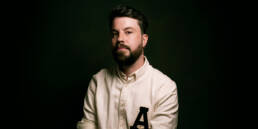
Canneseries-winning composer Giorgio Giampà dialled in all the way from Guatemala a few weeks back to talk to us about his latest project, the TV series The Good Mothers. He waxed lyrical about the brilliant team behind the project, his strategy in scoring the British/Italian production, as well as his process of writing music for a multimedia project.
Adapted from Alex Perry’s eponymous novel, The Good Mothers is based on the true story of three women born into one of the deadliest and wealthiest mafia families in Italy – the ‘Ndrangheta. Despite the enormous risk they’re taking, the fearless women work together with the newly appointed female prosecutor to bring down the organization. It is the first time the mafia is portrayed entirely from the women’s perspective and Giorgio made great use of his arsenal of creative techniques in order to achieve the perfect contrast between the enslaved and the subjugators; the unheard and the omnipresent; the conspicuous and the hidden.
Let’s chat about The Good Mothers. I just finished binge-watching the entire series. Great editing, directing, music. It’s so good!
The editors involved were really, really great. Julian Jarrold is one of my favourite directors. He’s very elegant also. The other things that he did in the past are so so beautiful; I was a fan of Becoming Jane. And Elisa Amoruso, the other director, she is very good too. I think it was a very good combination and the people that they put together…that was a very good productive strategy.
I loved how the series preserves this European flair to it.
Yeah, I think that is very interesting when TV series try to be like a longer feature film. There are some examples around like, I Know This Much Is True from Derek Cianfrance or Chernobyl. It’s a very great use of getting more time. I come from the arthouse film side and so sometimes it’s great to see TV series that take their time, not like give you the cliffhanger and all the things all the time, you know?
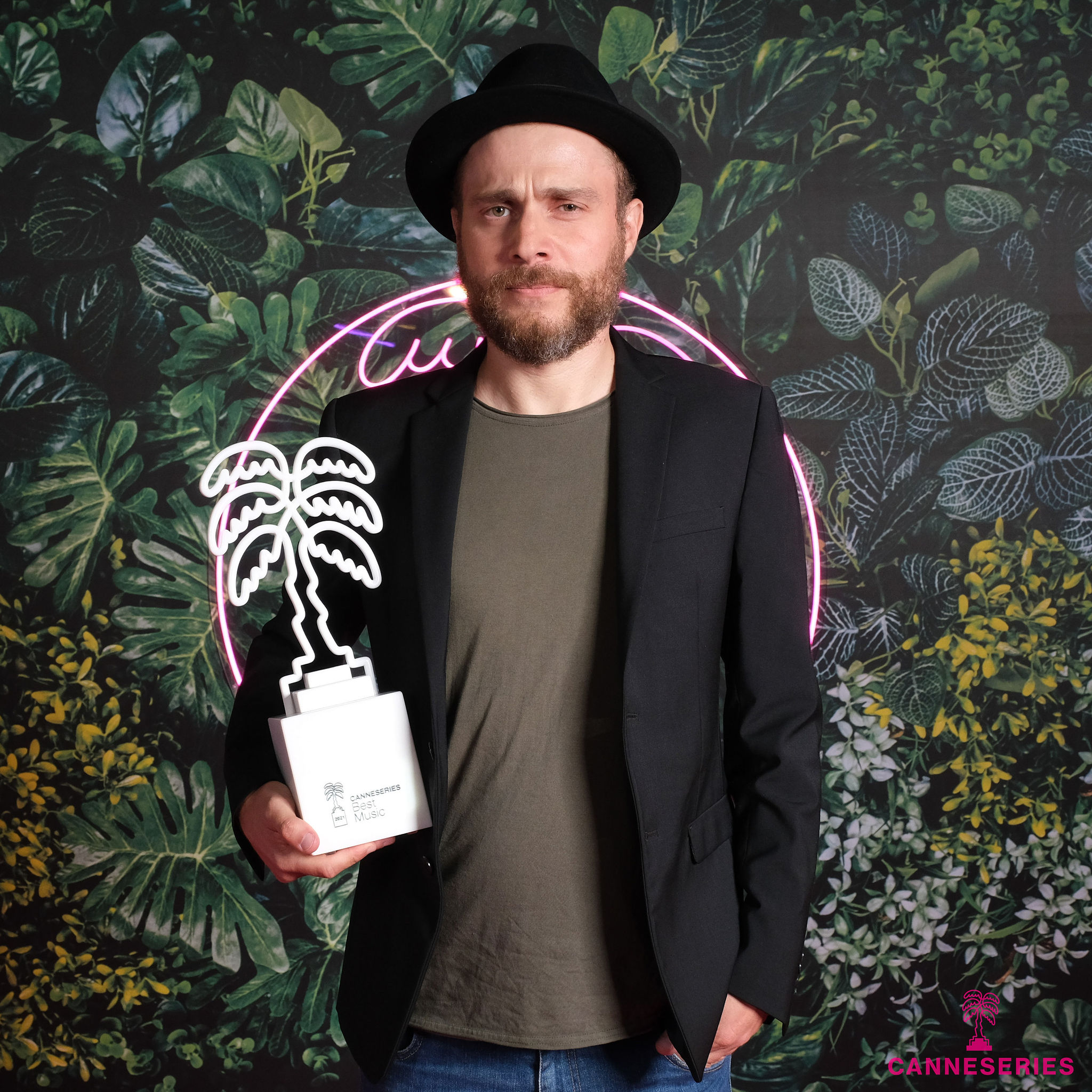 GIORGIO GIAMPÀ @ CANNESERIES BY OLIVIERVIGERIE
GIORGIO GIAMPÀ @ CANNESERIES BY OLIVIERVIGERIE
How did you get to work on this project?
Someone [suggested] my name because they always consider different composers […] – there’s this kind of competition. And so, we had interviews and I proposed to Julian – that was the interviewing director – my vision of what the music should do. Because I always try to understand, in terms of narrative, what music can do.
The first question that I always ask is, ‘What music should do? Should it like, be a character telling a story? Should it be another layer in the script?’. And I started thinking about these women, that they basically cannot talk. So, their voice is hidden, is whispered, is lost in the small roads of the small villages in Calabria. And so, I started to say to him, ‘Where is it, this voice? It’s lost somewhere.’. So maybe we should use a lot of reverb and try to find some narrative, some achievement that music could do, basically. And I guess he liked this and then they said, ’Yes, okay, you’re gonna do it.’
Only the key moments are underscored in the series and there’s a huge contrast between the cues that underscore the mafia bad guys which are very dissonant, menacing, on low frequencies. And then you have all this melodic, beautiful, and delicate music for the women. Please talk to me about this contrast.
Well, another inspiration was trying to feel for a second, one super tiny, tiny part of what women feel basically. As a man, I will never manage to do that because what women go through almost every day in their life, on a scale of very complicated situations to lighter but still very tough situations… that is impossible for us to understand. But I think it’s a very good in exercise to try a little bit. To do that, evoking in ourselves moments in which we felt uncomfortable, for example, […] knowing that it’s not possible to do that 100% because we don’t live in that world, the world in which women live.
So, you have these more narrative parts, but you have also the function of music and one of the functions of music, obviously, in a project like this, is to enhance the menace, the threat that these men are for the women. So that’s the other face, more simple face, you know, it was done like 10,000 times before to just enhance the feeling.
And something that I already thought in the past, when doing this work, is considering how the mafia people work. They work by hiding themselves. Their work is successful if they are not noticed. But they are felt. So, it’s like, the music comes from under the ground or behind this [curtain]. And so, that probably was the thing, enhancing these faces. Sometimes feeling they are in a good position, but they were like, shooting rage and horrible feelings all the time. Which is basically the world for the women, because there are nice faces that are very violent without saying anything.
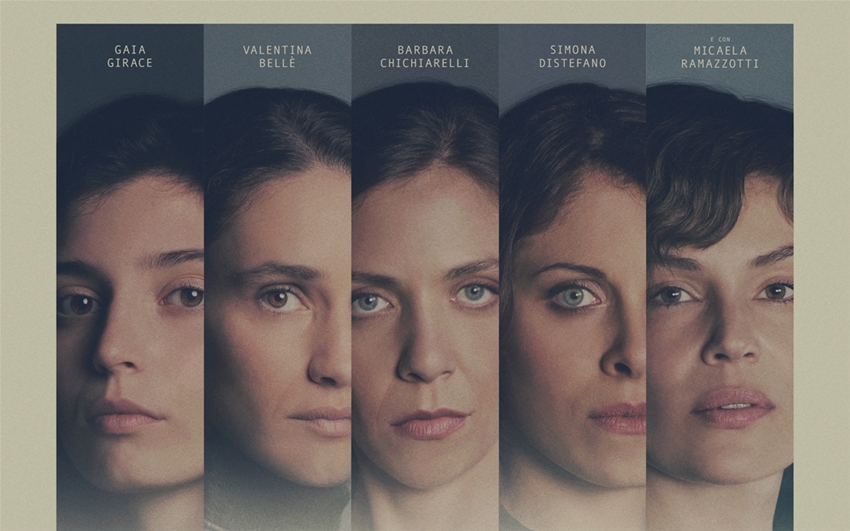 THE GOOD MOTHERS BERLINALE FESTIVAL POSTER
THE GOOD MOTHERS BERLINALE FESTIVAL POSTER
What was the most difficult scene or cue for you to score?
For TV series, I try to use a different strategy from the feature films. I try to make most of the music before. So, I worked on the script basically. And watching the dailies, which is the collection of the shots of the day. They put them on a website and I’m always watching them, so I learned about the director and I saw how they shoot. And I could start to feel what’s the movement of the camera, which is the rhythm. I did I think 75-80% of the music before so that they can edit with the music. So, you avoid having temp tracks – which is the great scary thing of our job and always a problem. And I rely a lot on the editors. Now they want to use the music too. Especially when you have great editors like this time, Simona Paggi, that was the editor for the first two episodes and did these two feature films that won the Academy Awards. She’s quite famous for the use of music the way she does. It was great to give her the possibility to use the music.
And then there were very complicated scenes in which we had to talk a lot to understand how to put the things together, but it was more music editing. In episode 2, there is a moment in which there’s a tarantella they display live in a very long scene and that, yes, was complicated, because music sometimes goes below the tarantella and then we had to match everything.
It sounds like you had plenty of time. It wasn’t a rushed project with a tight deadline.
No, because I start immediately. When they tell me, ‘Yes, you are going to do it.’ and I have the script, I have the dailies, I do it. So, they can work with the music and then there’s time to make more. For me, it works like a strategy. Some other people like to wait for the editing to be done. It’s more interesting also to sometimes not be linked in such a tough way to the image and more to the story. It can be a very good combination.
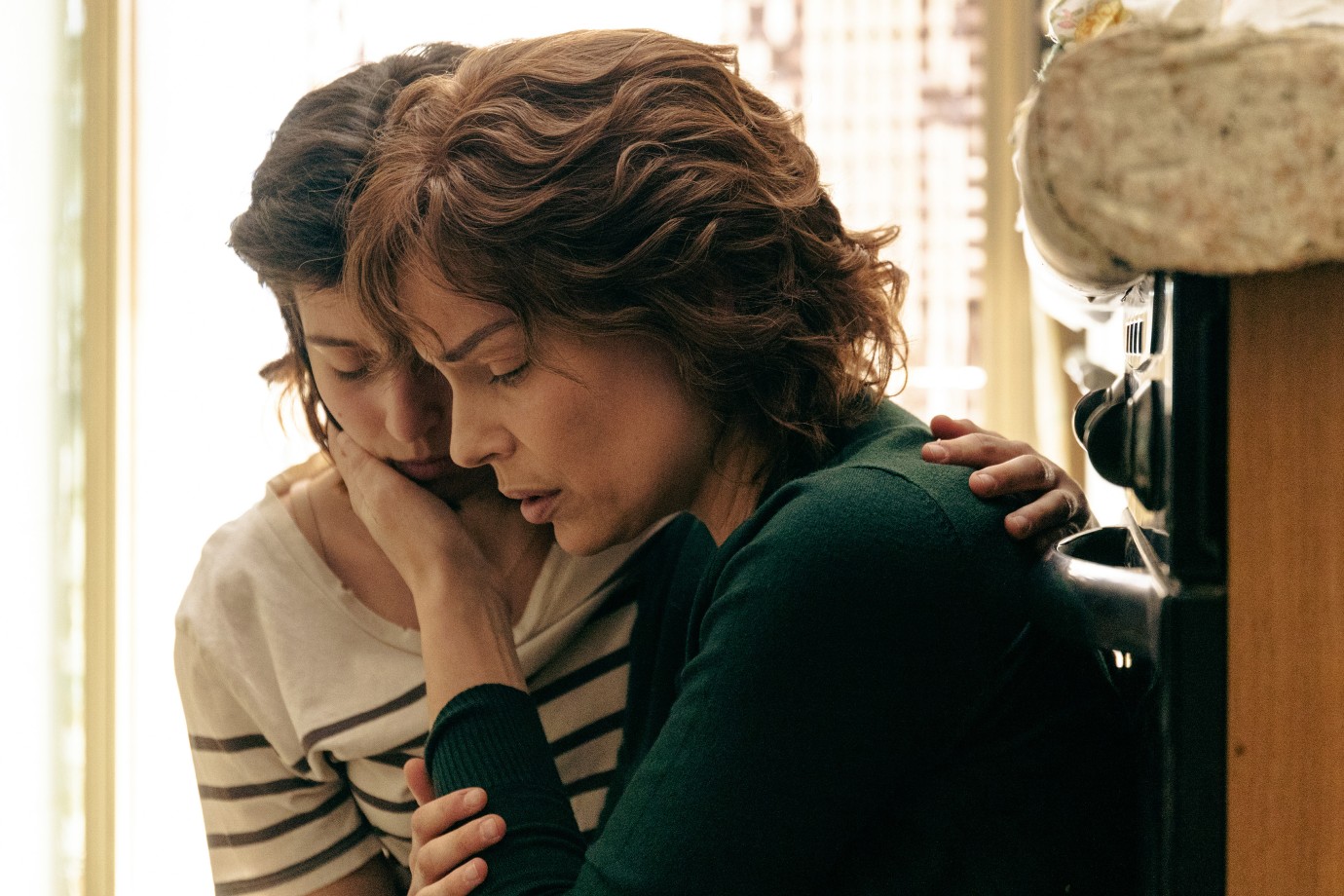 THE GOOD MOTHERS, STILL BERLINALE
THE GOOD MOTHERS, STILL BERLINALE
So, the part that inspires you the most on a project is the story.
I think when making an audio-visual project – films, TV series, documentaries, etc. – the thing is that we are part of a narration over the storytelling. It’s like when children play games and you have to choose your role, like some child will be the princess, the other one will like be the dragon. And then you can decide to be the walls of the castle or the cloud that is going through. That’s the interesting part of my job for me. And so, I like to connect to the story. Clearly, we are not doing music for ourselves. So, I always ask from the beginning, ‘How is the film going to look like?’, ‘What lenses did you use for the camera? Is it a hand-held camera or not?’. I watch the dailies, so I see what they’re doing. I see if the camera moves faster or moves slow.
Making a film is thinking about everything, basically. Sometimes you focus on something, sometimes you focus on something else. But you have to go along with the storytelling. And I’m polytheistic in this case, so you can change all the time the way you want to act or the way you are going to work and that’s good because if not, we would have gone to work in a bank doing the same thing basically – with respect to the bankers.
Did you write any specific music that you really loved but didn’t make it into the series?
You know, I think everything made it to the series. Actually, I fought a lot to try to not have one [cue] that I like very much but I didn’t feel that it was right for the TV series. So, it was the opposite. And I was always saying, ‘Come on, it’s not working! This one is better for something else.’, etc.
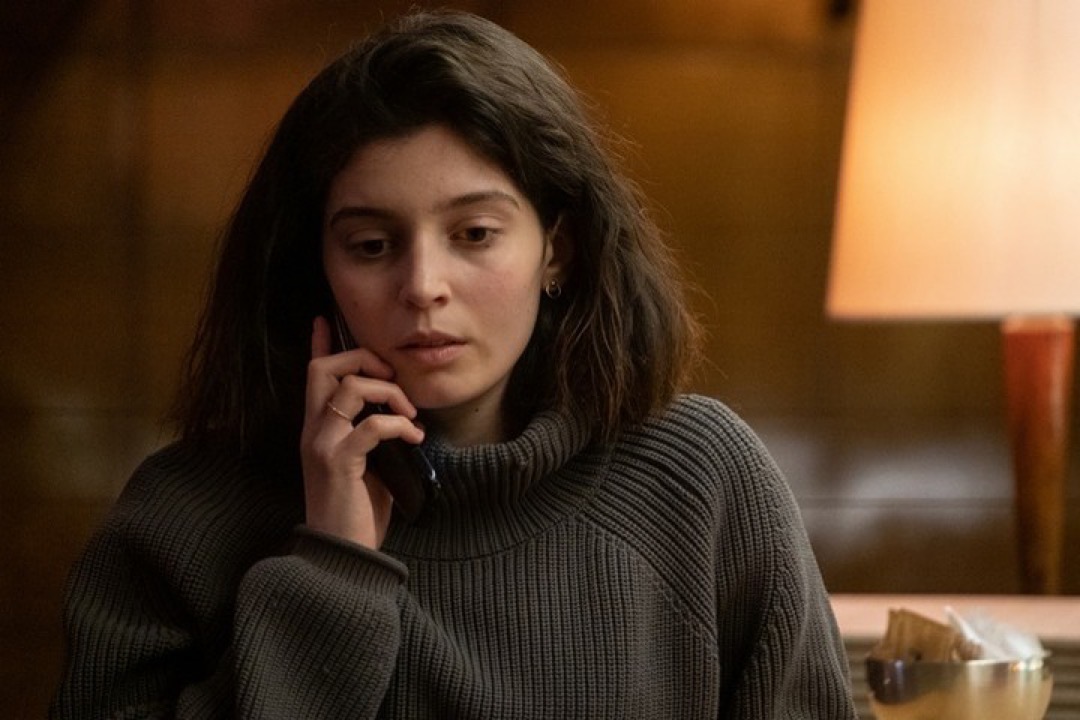 STILL FROM THE GOOD MOTHERS
STILL FROM THE GOOD MOTHERS
So, they ended up using it.
[laughing] Unfortunately, yes. But it was used in just one scene, and I have to say that in that scene, it works. But when I was with them, I was saying, ‘No, but we should turn off this music. It’s better to go without music.’. And they were always saying to me, ‘What a strange kind of composer you are that are asking to turn off music.’. There are some projects that need a lot of music. In this case, I felt that like silence was very interesting. I proposed to not put music on the end credits on episode three, for example, because I felt that it was very interesting to have silence after what happens in the end.
I think if you feel that your work is not to make music for yourself but it’s being part of storytelling, then you can live in peace if a work is not full of music.
As I understand it, you come from the same area where the action takes place.
I have roots from the south of Italy, from the region in which the TV series takes place and I remember one thing that I told to Julian, that that region is really great. It’s very underrated but the region is full of history, and it was part of the Magna Graecia; a lot of scientists and philosophers from the Magna Graecia times lived there. It’s a place in which you have a mountain, you can see two different seas when looking right and looking left, etc. It’s a region that is full of magic.
“Men should try to do an exercise about trying to feel – even if it’s not possible – but trying to feel what women feel.”
And I really think that we have to look really carefully for the backstory of the music. I think that we have to build the narrative role or the character of the music, working as actors do. I read the Stanislavski method because I wanted to understand how – and I really love the book. But it’s important to find backstories, even find things that you will not use, and maybe they will show up at one point. I felt that maybe there are some cues that could be connected to some Greek tragedies in the end. It was good to explore that side too.
Do you think that because you are familiar with the area that helped you picture the local culture better?
Surely, yes, of course, it can help, but I also think that you have to be able – and that was what Stanislavski was actually saying – to create a character even from a place that is very far from you and you never visited. He was talking about Polynesia in the book, like there will be one day someone asking you to act a Polynesian person and you’ve never been to Polynesia, but you have to be able to. How will you do? You have to study, and you have to feel. I work a lot in Mexico and I’m not Mexican. But still, you can study, and you can try to understand and then you can find the right way. Clearly, I spent a lot of time there and it helped, yes. But someone from Milano could have done it. [laughing] Or someone from London could have done it too. It’s just about studying a lot.
Did you learn anything about yourself while working on the series?
Wow… I don’t think I learned something about myself but it’s interesting what I told you before: men should try to do an exercise about trying to feel – even if it’s not possible – but trying to feel what women feel. Because that is so important. And so, that’s something that you have to do by trying to recall moments in which you’ve felt uncomfortable. Or, in this case, in which you felt that you couldn’t talk. And remember how it feels. And then [multiply] it by 1 million times, basically. So, I don’t know if I learned something but it’s a process that was intense. It’s a deep project.
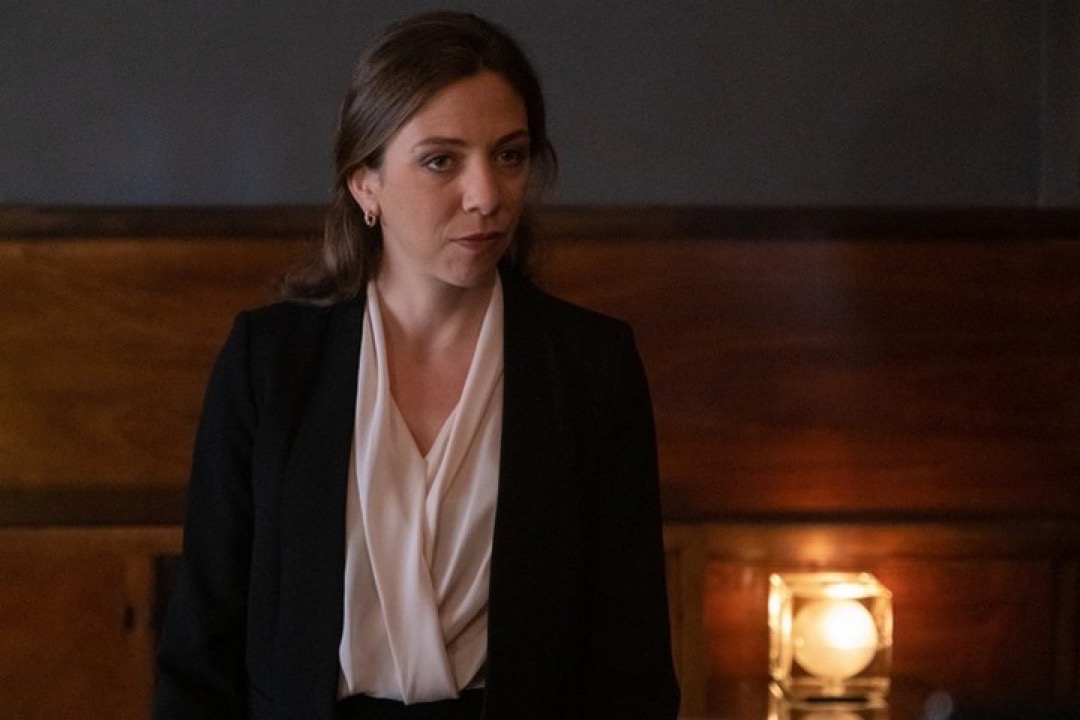 STILL FROM THE GOOD MOTHERS
STILL FROM THE GOOD MOTHERS
Do you think there are enough projects that talk about these important topics these days?
I think the situation is getting better, but we are very far from being equal by all points of view. There’s not enough representation for all the human groups that should be represented, that is sure. For example, I held a free workshop for female composers for some years because the numbers are very low. So, work should be more equal. It’s getting a little bit better, but we are still under a very high fever. Let’s put it like this. We need more paracetamol. It’s slow and it’s not acceptable to be so slow.
Do you have any exciting projects coming out soon?
I did an Italian feature film that is very interesting about a single gay man – it’s a true story – that fights to adopt. And it’s the first guy that is a single parent adopting and even more, a single gay man adopting. I don’t know if it’s still the only case in Italy, but it’s the first case.
And we just completed these days a Swedish feature film that is very beautiful, from Mika Gustafson. It’s our first feature and it’s very, very, very beautiful. I really, I really love the film and the director, she’s really great.
Stella Lungu
Stella is the Editor-in-Chief of The Cinematic Journal. She is also the Managing Director of Wolkh, a PR, Marketing and Branding agency specializing in Film, TV, Interactive Entertainment and Performing Arts.
An Interview with Anna Drubich
Anna Drubich is a Russian-born composer of both concert and film music, and has studied across…
A Conversation with Adam Janota Bzowski
Adam Janota Bzowski is a London-based composer and sound designer who has been working in film and…
Interview: Rebekka Karijord on the Process of Scoring Songs of Earth
Songs of Earth is Margreth Olin’s critically acclaimed nature documentary which is both an intimate…
Don't miss out
Cinematic stories delivered straight to your inbox.
Ridiculously Effective PR & Marketing
Wolkh is a full-service creative agency specialising in PR, Marketing and Branding for Film, TV, Interactive Entertainment and Performing Arts.

